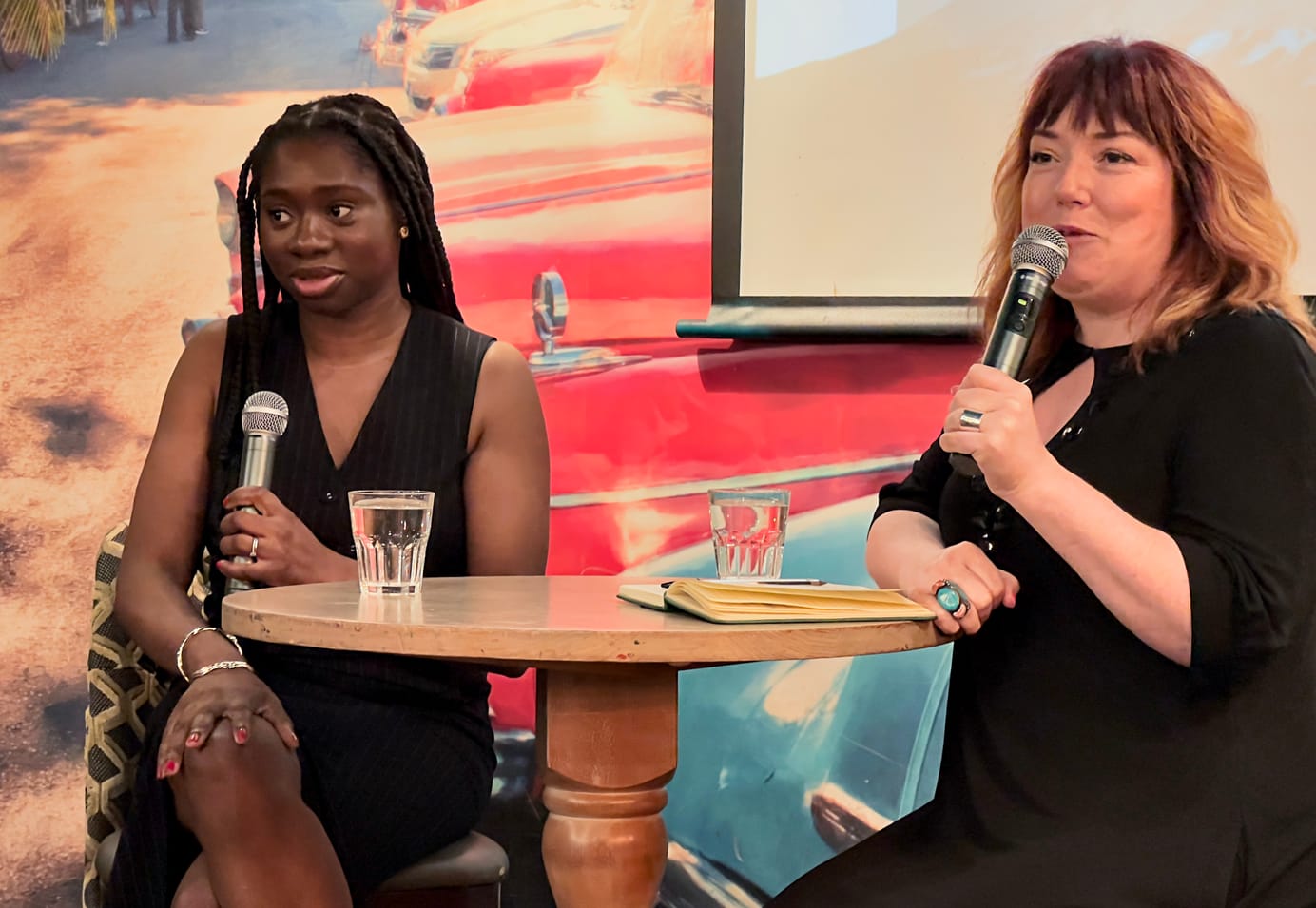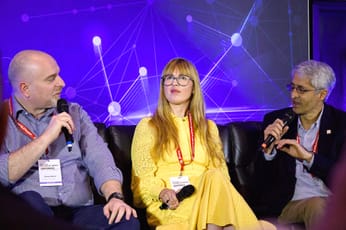#newsrw - Making money from content
Alex Watson, head of app development, Dennis
Apple’s Newsstand is a retail environment. Prior to it, you were just another app in the App Store. It is more of a retail shopping experience than we’re used to with the rest of the web. $400,000 in consumer revenue since the launch of Newsstand. 17 titles, after the Apple cut and VAT. BUT – people want free samples, and the download costs of millions of free issues is expensive. They were over-whelmed by technical support from the start. iOS users expect bullet-proof reliability – and they expect platform-specific features and big production qualities. You will be judged against Flipboard – and it took more in VC than Dennis did in revenue last year.
Also, advertisers are very sceptical of “page turners” – PDF replicas of your magazine. Dennis’s approach was a mix of quality and quality. Pretty much all their titles are on newsstand, bar those that there are content issues with Apple (Poker, alternative lifestyle). Some development of their own, some off the shelf solutions. They’re using Pixelmags for the page-turners. (and The Week is PugPig-based).
Don’t get carried away with the short term success of page-turners. $16,000 in revenue, 47k app download, no extra ad revenue.
The dedicated iOS designed one? 53k app download, $100,000 revenue plus advertising… Quality pays off here.
Next steps? Apple will sell more of these devices. People expect Newsstand. People will accept page-turners, but quality pays off.
Newsstand: Good for publishers, Apple and your users. But always think of your users.
Tom Standage, digital editor, The Economist
Not a magazine about economics – an attempt to be a weekly newspaper for the world. They’re growing both print and digital circulations. 300k people using the app every week. One third of the print readers are using the app regularly. “digital is not a zero-sum game”. The main reason people cancel the subscription is because they can’t keep up with the issues coming through. With digital editions, they can consume the magazine in new ways – the audio edition, for example. You can listen to it while jogging, you can read it on an iPhone, you can read it on an iPad. Great for customer retention. They’re encouraging people to think they’re subscribing to a weekly bundle of content, not to a magazine.
77% of digital subscribers are new to The Economist. 12% are lapsed print subscribers. The Kindle? A bookshop in your bag. People carry it around,a nd pay for content. iOS users are happy to pap for apps. There’s more opportunity here than there is on the web. Finishability is important – the catharsis of getting to the end of the magazine. The web has no end. Readers are creatures of habit, and they like to read at specific times of the week. It’s lean-back 2.0. The iPad app is read for long periods. Most people spend between and hour and and hour and a half.
One the web? Metered paywall – essential for sharing on social media. 5 story a week meter. Search referrals went up. Really promising model – works well for them. You need to know who your readers are to get a good print/digital synergy going.
Chris Newell, Impulse Pay
If you get the “Buy Now” barrier wrong, you’ll get low conversion rates. The average credit card takes 120 keystrokes to do a transaction. So their solution adds the cost to the mobile phone bill. Claims 50% conversion rate increase over PayPal. You get paid after 45 days, and get paid at least 75% of the tariff amount.
Francois Nel, researcher and academic
 Alchemy of business models. Alchemists have a bad reputation. Most were well-meaning intelligent scientists. They were experimenting to find ways of changing elements. So it is with business model innovators. Can we find some underlying principles?
Alchemy of business models. Alchemists have a bad reputation. Most were well-meaning intelligent scientists. They were experimenting to find ways of changing elements. So it is with business model innovators. Can we find some underlying principles?
The key is reciprocity.
Sharing is caring – a key principle of personal AND business relationships. The core part of all business is the ability to give something back. Claude Lévi-Strauss’s ideas: human beings are wired to follow rules, and reciprocity is the simplest way to create these rules that bind us together.
Media executives are planning on concentrating on new products and streamlining workflows. Write once, publish many – but with fewer people. The top five opportunities are about social, local, mobile – solomo. Media executives are smart – but at what price? To paywall or not to paywall is not a very sophisticated way of framing the discussion. We’ve always had different value propositions at different price points.
Business models are not just revenue – they’re a way of thinking. Daily Mail – down 4.63% in print. One of the lowest declines. Online? Up 58.89%. Meteoric! The upshot is that they’re making £75m profit. The Guardian is down 14.10% in print. Up 31.45% online. Huge amount of time and money on social, leaders on Facebook with their app. Operating loss is £55m. The Guardian‘s output is admirable, but we have to ask ourselves where the revenue is.
The Mail app is free for 60 days. No integrated newsroom – separate teams for the two products. News agenda is different. The digital staff is small. They supplement the newspaper with the digital channel. The Guardian is offering you a substitute. One is a complementary strategy, one is a displacement/cannibalisation strategy.
But – new Guardian Facebook app. All the content. Is is complementary or cannibalisation? Facebook advertising doesn’t belong to The Guardian. There’s not a lot of love going back there…
We need to grow up. Users will start to understand the need for reciprocity in online relationships.
“So what?” asks the audience. There are lots of ways the audience can give back – money, data… We can’t build sustainable relationship by only giving or only taking. There’s plenty of money online – just because we’re not looking for it in the right places, doesn’t it mean it’s not there.
Debate.
And the panel erupts into debate. Is The Guardian‘s model based on a Britain-only assumption? Do they need to cut journalism costs, as well as up their revenue? The Telegraph once made an offer for paper for a year and a huge discount. Yes, it got the guy fired who came up with idea – but it captured a huge database of readers, which was hugely valuable.
Will people realise that if they don’t pay, these things they like will go away? Nel returns to the idea of growing up. Pity – a panel that started well ended up on “how do we save The Guardian?”. There are bigger issues than that.
Sign up for e-mail updates
Join the newsletter to receive the latest posts in your inbox.












